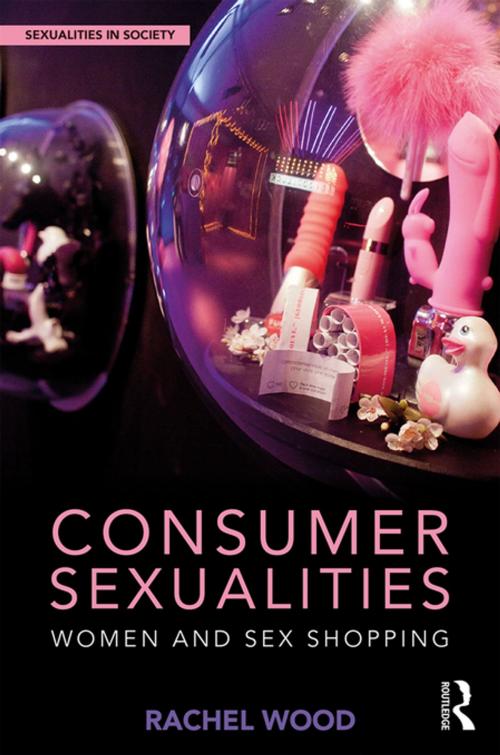Consumer Sexualities
Women and Sex Shopping
Nonfiction, Social & Cultural Studies, Social Science, Sociology| Author: | Rachel Wood | ISBN: | 9781315447506 |
| Publisher: | Taylor and Francis | Publication: | August 3, 2017 |
| Imprint: | Routledge | Language: | English |
| Author: | Rachel Wood |
| ISBN: | 9781315447506 |
| Publisher: | Taylor and Francis |
| Publication: | August 3, 2017 |
| Imprint: | Routledge |
| Language: | English |
Consumer Sexualities explores women’s experiences of shopping in ‘sex shops’ and using sexual commodities in their everyday lives. This enlightening volume shows how women take up sexual consumer ‘technologies of the self’ to work upon and understand themselves as confident and active sexual agents in postfeminist neoliberal culture. In guiding the reader through the historical emergence of sexual commodities ‘for women’ in feminism and postfeminism, Wood points to the normalisation and regulation of sexual practices and identities in and through consumption. Indeed, women’s accounts show the work involved in constructing the ‘right’ – knowledgeable, tasteful, and confident – orientation to sexual consumption and, by extension, in becoming an intelligibly ‘good’ sexual person. At the same time, the author draws upon de Certeau to show how the ordinary contexts in which sexual commodities are used can lead to unpredictable moments of adaptation, discomfort, playfulness, and resistance.
A rich analysis of women’s everyday strategies of ‘making do’ with the kinds of femininity and female sexuality that sex shop culture represents, Consumer Sexualities will appeal to scholars of sociology, cultural studies and gender studies with interests in gender, sexuality, sex, and consumption.
Consumer Sexualities explores women’s experiences of shopping in ‘sex shops’ and using sexual commodities in their everyday lives. This enlightening volume shows how women take up sexual consumer ‘technologies of the self’ to work upon and understand themselves as confident and active sexual agents in postfeminist neoliberal culture. In guiding the reader through the historical emergence of sexual commodities ‘for women’ in feminism and postfeminism, Wood points to the normalisation and regulation of sexual practices and identities in and through consumption. Indeed, women’s accounts show the work involved in constructing the ‘right’ – knowledgeable, tasteful, and confident – orientation to sexual consumption and, by extension, in becoming an intelligibly ‘good’ sexual person. At the same time, the author draws upon de Certeau to show how the ordinary contexts in which sexual commodities are used can lead to unpredictable moments of adaptation, discomfort, playfulness, and resistance.
A rich analysis of women’s everyday strategies of ‘making do’ with the kinds of femininity and female sexuality that sex shop culture represents, Consumer Sexualities will appeal to scholars of sociology, cultural studies and gender studies with interests in gender, sexuality, sex, and consumption.















